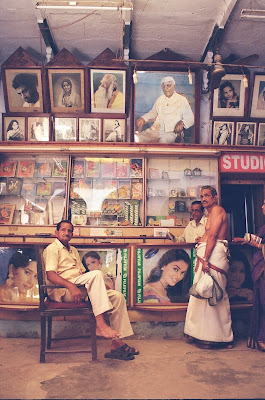
The Indian government finds itself in an impossible situation in Kashmir. The largest demonstrations in two decades in the valley have brought hundreds of thousands to the streets, calling for freedom. This surprising turn of events is a stark contrast to the relative calm and optimism in the area following the much-lauded 2002 local elections, coinciding with President Musharraf's commitment to control jihadist elements across the border. The current situation only demonstrates New Delhi's flawed strategy to an untenable situation, inevitably bound to become more difficult given the dormant frustrations and tensions in the region.
This past year was especially good for the valley, with record highs for tourism and economic activity. There were no outward signs that a flare up of this magnitude was on the horizon, let alone enormous, unprecedented, mostly non-violent calls for independence that have caught the Indian security forces off guard. Having been trained to fight an insurgency they now, quickly, are training for crowd control.
The spark that set off the crisis was a transfer of 92 acres of land for a Hindu pilgrimage. It is, of course, not the direct cause to the current conflict. The roots are much deeper. About a half a million soldiers pursue a few thousand militants, making Kashmir the most militarized zone in the world. Human rights violations have been rampant. Nobody has figured out how to deal with insurgencies mixed with terrorism, and the Indian state often finds itself stuck between doing nothing and doing too much. To make up for it, New Delhi - to their credit - focuses on appeasement through economic and political means.
No state, per capita, has received as much economic aid as Kashmir has, but to no avail. No state has experienced as much political autonomy either - in no small part due to a special constitutional provision dating back to Nehru. Elections in the region are promising but prominent Kashmiri leaders focus not on improving governance but rather on independence and an emphasis on Islam as a guiding force. Democracy has this illiberal underbelly, much like Hamas in Palestine and the Islamic parties of the northwestern frontier in Pakistan, which, though elected by the people, often work against the people's interest by promoting terrorism and repression.
So force is not working, neither is money or democracy. If Kashmiris had a right to self-determination they would very likely secede and/or join Pakistan. There is little doubt about that. But then again, so would other parts of India if given the choice. Besides Kashmir, secessionist problems existed in Punjab and currently one can make the case that Assam and Nagaland would be motivated by any loss to Indian territory. And these are just the overt cases. Since independence, a dialectical balance has constantly been in play between the center and peripheries. Concessions and compromises were always made; Hindi being a case in point, first being force taught to the South, to later being dropped after numerous protests. All this has led to greater decentralization and the rise of regionalist parties and the creation of new states, allowing for India to stay integral and united amidst tremendous diversity.
What has worked in other areas of India has not worked in Kashmir for a whole host of reasons none greater than the fact that Pakistan is right next door. Since independence three official wars have been fought, not to mention numerous skirmishes, with the insurgency being directly aided by the ISI; Pakistan's notorious intelligence agency. In fact, in the period 2002-2008, violence has gone down in no small part to Musharraf's commitment to control infiltration from jihadists. With Musharraf gone and Pakistan slowly slipping into chaos, Kashmir will be as vulnerable as ever. An independent Kashmir will bring Pakistan and its instability that much closer to India.
With the recent unilateral actions by the U.S. in Pakistan's tribal areas, with a possible fall-out between the two governments likely, the situation is getting trickier. India can be that missing piece that can add pressure from the LOC given Pakistan's current vulnerability. Recent deployment of 6 of its most capable warplanes to Kashmir precisely sends this message.
All this makes a Kashmiri state, or any redrawing of borders, extremely unviable. An independent Kashmir, or worse a Kashmir as part of Pakistan is not a possibility as far as Indian strategic and security interests are concerned. The implications for the region are too great. The point is moot whether Kashmiris are freedom fighters or terrorists. A supposed emerging super power will not be keen to show weakness and no secession or compromise will be made; already clear from Manmohan Singh's "no borders will be redrawn" statement. Further agitation will only serve to challenge his authority and with time, if continues, will only provoke more violence and ruthlessness.
That national elections are looming on the horizon doesn't help the situation. The BJP has a history of riding the waves of religious controversy to power. Further calls for freedom, or any threat of Kashmiri independence will make Kashmir be what Ayodha was in the 1995 elections: A rallying cry to unite Hindus against Muslims. BJP's 2004 strategy emphasizing economic growth and "Shining India" failed. They've wised up and know that people are motivated more by threats to security and more importantly threats to their identity. Hindu agitation in Jammu, with their own protests and economic blockade of the valley, is evidence enough that the times ahead with only get worse.









